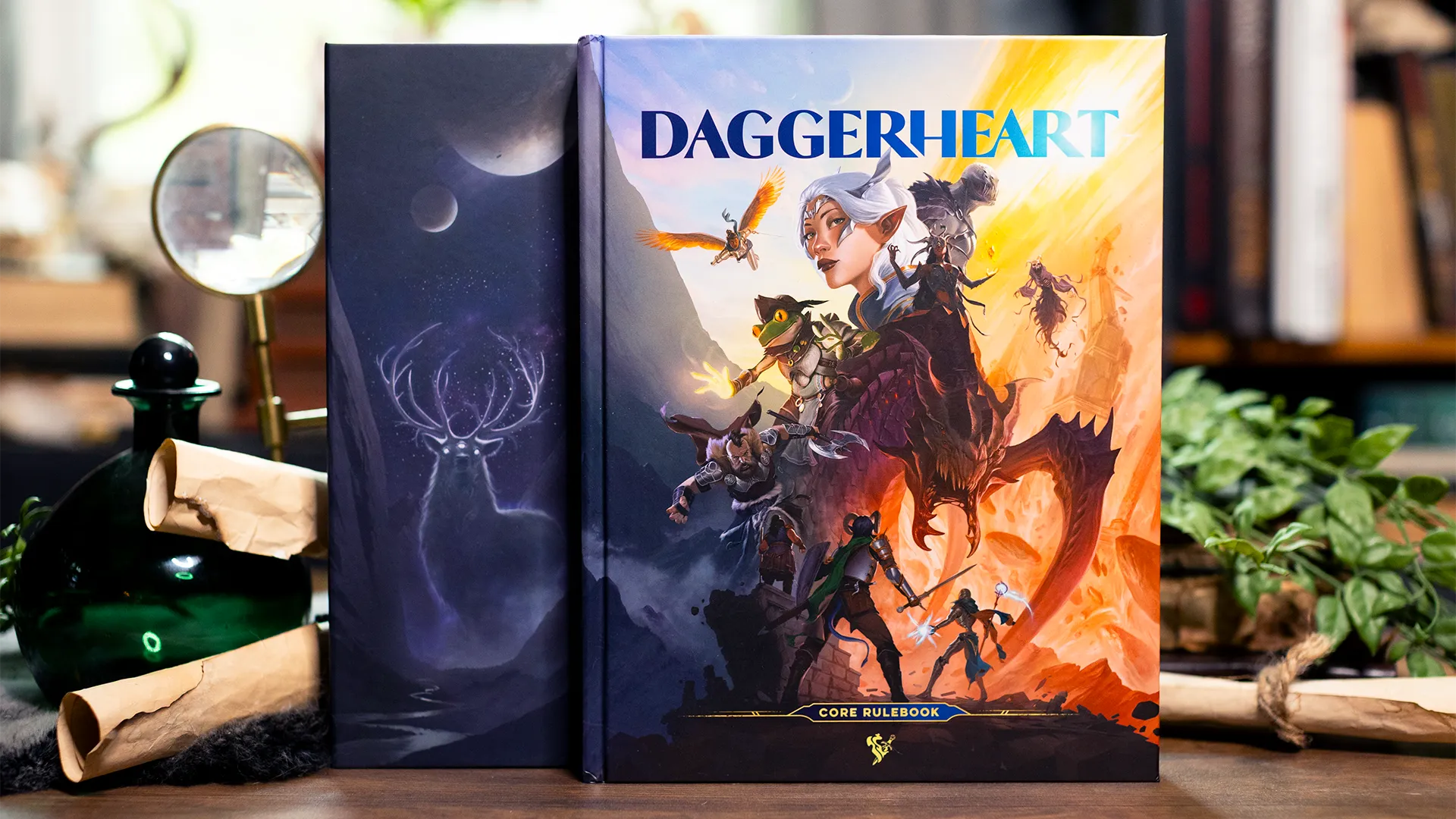Recently I’ve been diving into Daggerheart — the new fantasy RPG from Darrington Press, the publishing arm of the massively successful actual-play show Critical Role.
I haven't gotten to play it at the table yet, but just reading through the rules I've been wondering if its mechanics might naturally guide you to better improv storytelling.
For example…
D&D’s mechanics might give you the following after you make a roll:
“You fall off the wagon. You’re now at half health. What do you do?”
That’s technically full of possibilities, but also kind of paralyzing. Do I hide? Lash out? Am I embarrassed? Angry? Defeated? Do I check how far the wagon rolled? It’s a blank page.
When I face infinite choice like that, I often search for something to give me an idea, and usually end up picking something on the character sheet in front of me.
“Uh, I get up and shoot my crossbow. At the driver.”
Not bad at all—but it’s not a choice born from the drama.
With a little direction, however, it’s easier to come up with something like:
“I drag myself to my feet, torn and bloodied from the fall. I’m exhausted, and barely holding it together—but I will NOT let them get away. I muster my energy and start to sprint after the wagon, my legs searing with pain.”
That little narrative scaffolding opens the door.
Of course, some GMs and players can come up with these choices on the fly, without any guidance from the game. But just like outsourcing the choice of who wins the "I hit you!" and “No, you didn't!" argument to a die roll makes life easier for everyone, giving a few extra hints about where they might want to take the narrative with every roll can be a lifesaver.
That's one reason natural 1s and 20s can be so much fun in D&D. They make a dramatic choice for you. Instead of just describing any kind of success, you have to describe a fantastic success. Instead of any kind of failure, you have to come up with a horrible failure.[1]
Now, I haven’t played Daggerheart yet, so I don’t know if any of this will actually hold up in practice. But there seem to be a lot of mechanics in Daggerheart to help with making narratively satisfying choices. That's exciting.
It's crunchy, but not like a reality simulator trying to give you rules to accurately adjudicate every possible physical action you could take in the world. It's crunchy in a narrative way.
Wouldn't it be fun if Daggerheart quietly helped solve a tricky problem in many storytelling RPGs?
Wide open choices can freeze you, whereas a little direction can be freeing.
Neat.
If you use those optional rules, that is. ↩︎


